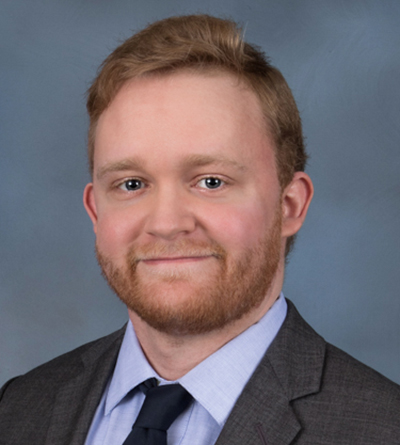
Andy Thomas, MD
Andy Thomas, MD, is a resident at University of Alabama FMR in Tuscaloosa, AL. He is a 2025 recipient of a STFM Foundation Faculty for Tomorrow Resident Scholarship.
Dr Thomas' Family Medicine Story
Why are you interested in teaching family medicine?
Dr Thomas: My journey toward teaching family medicine is deeply rooted in my personal experiences in rural Alabama. As a child, I witnessed firsthand how access to quality primary care physicians transformed the community's health outcomes. This early exposure ignited a passion that grew stronger throughout my medical training and the current role as a chief resident. The growing disparities in health care access and outcomes observed during my formative years have become powerful motivators for my pursuit of an academic career.
The beauty of family medicine lies in its comprehensive approach to patient care, emphasizing the importance of treating not just the illness but also understanding the patient within their family and community context. As a future clinical teaching faculty member, I am excited by the opportunity to share this holistic perspective with the next generation of physicians and encourage them to pursue primary care in the same way that my mentors have influenced me.
During my residency, I found satisfaction in guiding medical students and junior residents through the complexities of primary care, helping them understand how the social determinants of health, preventative medicine, and continuous patient relationships intersect to create meaningful health care outcomes. My enthusiasm for teaching stems from the transformative moments I have witnessed in learners, whether it is a medical student successfully conducting their first well-child visit or a resident developing a comprehensive care plan for a complex patient.
These experiences have shown me that teaching is not just about communicating medical knowledge, but also about nurturing future physicians who will carry forward the values and principles of family medicine. The joy of seeing a learner's growth and development, particularly when they grasp complex concepts or master new clinical skills, further encourages me and solidifies my commitment to medical education.
As someone who has chosen to practice in an academic setting, I recognize the unique opportunity to bridge the gap between evidence-based medicine and real-world applications. Teaching allows me to stay current with advances in medicine while helping students and residents develop critical thinking skills essential for primary care practice. Academic medicine is a dynamic environment where teaching, patient care, and research intersect, providing a perfect platform to contribute to the evolution of family medicine while mentoring the next generation of primary care physicians.
How do you think you can make a difference in the future of family medicine?
Dr Thomas: As I transition into my role as a faculty member at my home institution, I envision making a meaningful impact on the future of family medicine through several key approaches. First, I plan to focus on addressing the critical shortage of primary care physicians in rural areas by developing targeted mentorship programs that expose students and residents to the rewards and challenges of rural practices. Having grown up in rural Alabama and understanding the health care disparities that these communities face, I am uniquely positioned to advocate for and guide learners interested in serving these populations. This includes creating sustainable partnerships with rural practices and developing rotational experiences that showcase the impact of comprehensive primary care in underserved communities.
Additionally, I aim to contribute to the advancement of primary care through research initiatives that focus on preventative medicine and population health. By involving students and residents in these research projects, I hope to demonstrate how academic family medicine can drive health care innovation, while improving community health outcomes.
My research interests focus on implementing evidence-based preventive care strategies in resource-limited settings and studying their impact on community health metrics. I believe that we can strengthen the future of family medicine by emphasizing its role in addressing health care disparities and promoting health equity. Through curriculum development and hands-on teaching, I plan to integrate the social determinants of health and cultural competency into daily clinical education, preparing future family physicians to provide comprehensive, patient-centered care to diverse populations. This includes the development of innovative teaching methods that emphasize the importance of understanding patients' social contexts and community resources.
Furthermore, I intend to leverage my position to advocate primary care at both institutional and policy levels. By participating in medical education committees and professional organizations, I can help shape educational policies that promote family medicine and primary care careers for medical students. This includes developing innovative teaching methods that highlight the intellectual challenges and professional satisfaction inherent in family medicine practices.
My commitment to the future of family medicine extends beyond the classroom to create sustainable models of primary care delivery that can be replicated in various settings. By demonstrating effective approaches to preventative care, chronic disease management, and population health, I hope to inspire the next generation of family physicians to create innovative solutions to health care challenges. This includes incorporating new technologies and care delivery models while maintaining the core values of comprehensive, continuous, and compassionate care that define family medicine.
Contribute to the Creation of the Next STFM Story
Transforming the future of family medicine would not be possible without the generosity of countless STFM members and supporters. Through both member and departmental donations, the STFM Foundation is able to support the pipeline for academic family medicine.
Help transform the future of academic family medicine by donating to the STFM Foundation. If you have questions about the STFM Foundation, contact Mindy Householder at (800) 274-7928 or mhouseholder@stfm.org.




